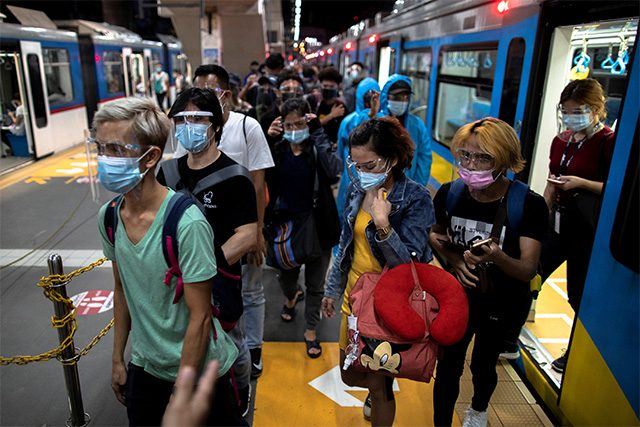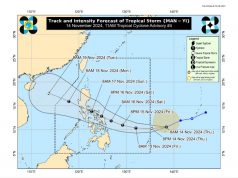
Terrible public transport experiences were talked about online after the city of Manila was revealed to be among the cities with the worst public transportation system in the world.
Manila ranked 56th in terms of public transit out of 60 key cities worldwide.
The ranking is part of an international study called “2022 Urban Mobility Index” wherein the mobility preparedness of these cities was analyzed.
The study was conducted by the think tank, Oliver Wyman Forum in partnership with the University of California in Berkeley, USA.
Aside from public transit, Manila also ranked low in the following categories of the index:
- 58th place in Urban Readiness Mobility
- 48th in Sustainable Mobility
The Philippine capital is, therefore, listed among the study’s “lagging cities” in public transport.
The top 10 countries with the worst public transport systems are the following:
- Cairo
- Abu Dhabi
- Casablanca
- Quito
- Cape Town
- Manila
- Johannesburg
- Riyadh
- Nairobi
- Jeddah
Based on its website, the public transport sub-index “measures cities on public transit density, efficiency, and utilization rate and the extent to which they can adapt to address competition from emerging mobility services.”
Commuters’ reactions
These findings were soon talked about in a report by Vice Asia and the online forum r/Philippines.
Several Redditors couldn’t help but share their worse experiences while commuting in Metro Manila.
“I usually can get away with getting to work non ng 30 mins na byahe kasi pang-gabi ako. Nag-pang-umaga ako, 6:30 [a.m.] kelangan nasa terminal na ko kasi anything later than that, paka-haba na ng pila,” one Redditor said.
“Before pandemic pa to ha, gigising ako ng 3 a.m. para dumating sa makati ng 8 a.m. tapos babalik ako sa amin 10 p.m. rinse and repeat,” another Redditor said.
Other Redditors also recalled instances that their travel time took an hour even within cities or nearby areas only.
“Quezon City is 1 hour away from Quezon City,” one Reddit user said.
“I experienced 1 hour from Makati to Makati, which is smaller than QC,” another Reddit user commented.
Some Facebook users, meanwhile, criticized the government for prioritizing roads over railways and infrastructures for pedestrians and cyclists.
RELATED: Nancy Binay’s Skyway traffic tweet renews calls for better public transportation
“The construction of highways and expressways is more priority than prioritizing the construction of railway systems, pedestrian and cycling paths,” a Facebook user said.
“They like to build more highways, bridges, whatever instead of addressing the real issue of mass transportation. More vehicles on the road, more traffic, less mobility,” another user commented.
Some online users attributed the public transport situation to the government’s neglect of urban planning over the years.
“It is because the urban plan was not followed and years of neglect of our government to adopt changes, the buildings and establishments continue to expand but our roads are still the same. Now we can’t even expand our roads due to the huge establishments. They even occupied the sidewalks. Yikes,” a Facebook user commented.
Highlighting public transit
Meanwhile, the report on the mobility index highlighted the importance of public transit as the key to urban vitality.
“Public transit is the most efficient and sustainable way for cities to transport large groups of people compared to private means of transit, and an efficiently run system can not only encourage workers and tourists to travel through cities but can provide more equal opportunity access to additional mobility modes, jobs, shopping centers, and more,” the study said.
The researchers also noted that Manila and other cities that “lagged” in public transit failed to take advantage of the disruption caused by the pandemic to improve their systems.
The top ten best public transit systems in the world, according to the study, are as follows:
- Hong Kong
- Zurich
- Stockholm
- Singapore
- Helsinki
- Oslo
- Tokyo
- Paris
- Berlin
- London









